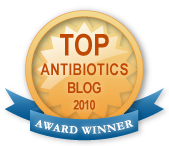Contributed by Siddarth David & Dr. Tamhankar
A study published in the journal Antimicrobial
Agents and Chemotherapy found that nearly 5% of the 400 people
surveyed had used antibiotics without prescription and nearly one-fourth would
intend use antibiotics without a prescription. The study conducted in Texas
showed that one in twenty used these
antibiotics to treat self-diagnosed viral illnesses like the flu and colds,
even though antibiotics don’t work on viruses and one in four said they would
use any antibiotic they had in the house to treat a sore throat, cough and runny
nose.
The lead author of the study Larissa
Grigoryan said that when people self-diagnose and self-prescribe antibiotics it
is likely that the therapy is unnecessary because most often these are upper
respiratory infections that are mostly caused by viruses. She also pointed out
that the most common conditions patients reported self-treating with
antibiotics were sore throat, runny nose or cough which were conditions that
typically would get better without any antibiotic treatment. The study also
showed that about one in twelve respondents had leftover antibiotics available
at home which could be used, another critical cause for concern.
The study has shown yet gain that
self-prescription of antibiotics was a critical contributor in the process of
antibiotic resistance. Awareness and strict monitoring of purchases would be
crucial to address the problem and should be part of the local, national and
global policies to address antibiotic resistance.

